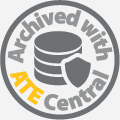"Gamified" Digital Forensics Course Modules for Undergraduates
Cybersecurity and digital forensics are critical areas of national importance, with an increasing demand for knowledgeable professionals. The demand for well-qualified workers in these areas has prompted the development of many cybersecurity and digital forensics programs and certificates by two-year and four-year colleges. Community colleges often offer an Associate of Applied Science (A.A.S.) degree in computer forensics or an Associate of Science (A.S.) degree for transferring to four-year colleges. However, as digital forensics is a relatively new field, only limited curricular materials are covered in these programs, and the courses have been primarily designed for upper-level undergraduate students, who are better-prepared to deal with abstract concepts and complex forensics technologies. In this pilot project, three institutions -- Rochester Institute of Technology, Corning Community College, and Onondaga Community College -- will collaborate to enhance digital forensics curricula by introducing a small set of "game-based" digital forensics modules for entry-level students. The game-based, modular approach will enable colleges to offer digital forensics training to entry-level students, therefore producing additional skilled forensics technicians and professionals to meet workforce demands. The investigators expect this project to directly impact more than 500 students from at least 20 two-year and four-year colleges, including community colleges in rural areas.
This project uses the Game-Based Learning (GBL) approach, which presents forensics concepts and practices designed as games through technology to engage students' learning. A sequence of entertaining yet educational digital forensics modules will be built into games in a real computing environment that has direct access to the latest forensics software. The level-100 module will cover principles of computer forensics investigation, including incident response and processes and procedures for collecting, preserving, analyzing, and reporting digital evidence to the courts. The level-200 game-based modules, focusing on system and network forensics, will especially help freshmen and sophomores to better understand forensics concepts and engage them to obtain hands-on experience in a user-friendly way. These modules will also lay a solid fundation for community college students to undertake advanced forensics training if they transfer to a four-year college. In contrast with the traditional teaching approach, the modular approach utilizing GBL and visualization techniques will help students to understand intangible and inaccessible abstract concepts such as deleted/hidden/encrypted/overwritten digital evidence, and to effectively convey critical aspects of computer forensics. This approach will also encourage students to explore forensics investigation technologies and procedures via hands-on techniques. Solving the puzzles and reaching milestones along the way will provide rewards and positive reinforcement when students take actions appropriate for the problem at hand. Unlike other video games, these educational forensics games will be developed to interface in a real computing environment that allows students to investigate real cases using state-of-the-art forensics software. Through this research and development effort the investigators aim to study the effectiveness of the GBL and visualization approach in engaging and improving entry-level students' learning in advanced fields such as digital forensics, which involve understanding abstract concepts and hands-on practice. In addition, the study seeks to broaden the base of knowledge regarding the conditions under which successful learning occurs.
About

Comments